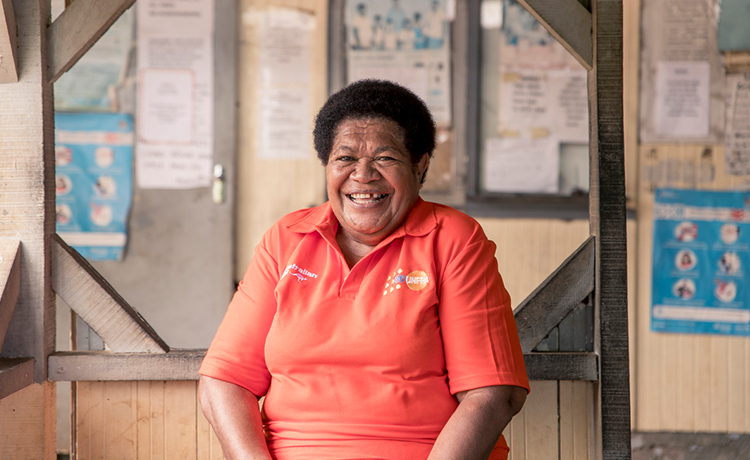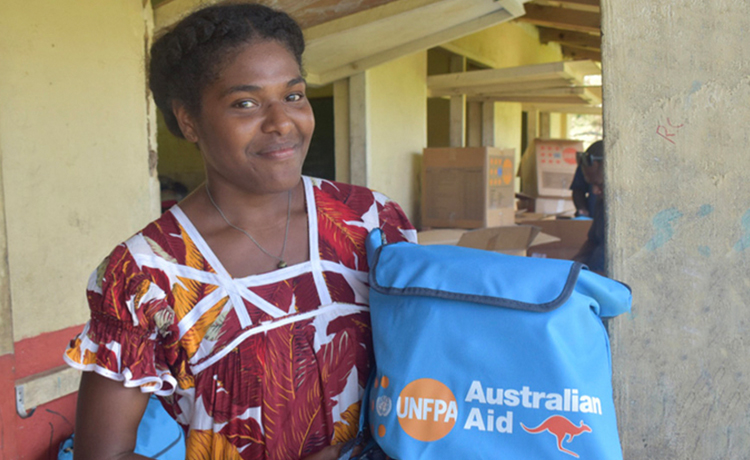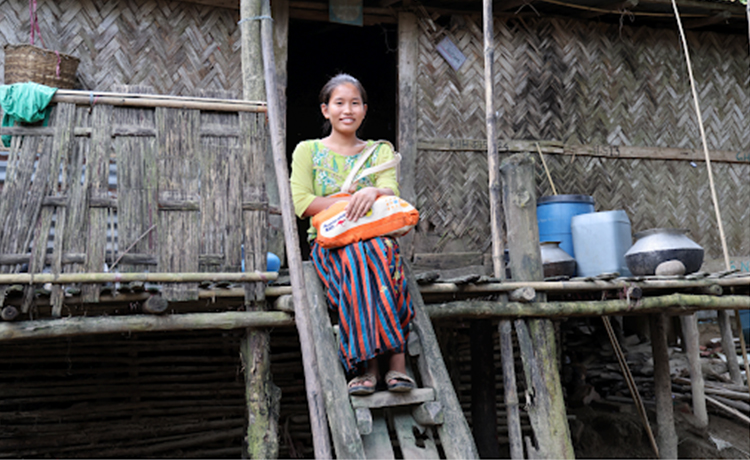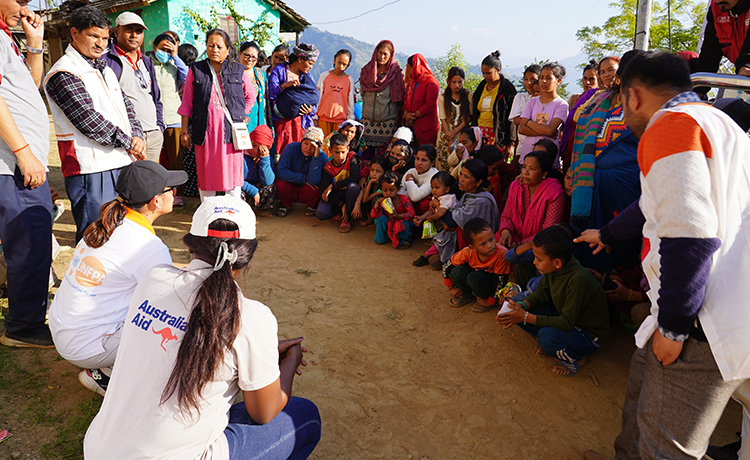Updates
Five ways UNFPA’s partnership with Australia is making a difference in the lives of women and girls
08 Mar 2024
Updates
08 Mar 2024
CANBERRA, Australia – On International Women’s Day, the Executive Director of UNFPA Dr. Natalia Kanem is in Australia to rally the people of Australia – and the world – to the pressing cause of gender equality and what we must urgently do to achieve it.
Through this trip, UNFPA, the United Nations sexual and reproductive health agency, is reaffirming the importance of a partnership with the Australian Government that has been transforming women’s and girls’ health and rights. We delve into five ways this partnership is making a difference in the lives of women and girls.
1. Accelerating access to sexual and reproductive health in the Pacific

Since 2018, a Transformative Agenda has aimed to ensure that women, adolescents, and young people in the Pacific, including from marginalized communities, can access quality sexual and reproductive health and rights information and services.
The programme focuses on nine Pacific island countries – Fiji, Kiribati, Federated States of Micronesia, Nauru, Marshall Islands, Samoa, Solomon Islands, Tonga, and Vanuatu – in a region marked by vulnerability to natural and climate-related disasters and a lack of investment. The aim is to strengthen human rights-based training to support the provision of sustainable and quality family planning services. With support from the Australian Department of Foreign Affairs and Trade (DFAT) over the last five years, UNFPA and its partners in six countries have trained 420 health-care workers, covering 231 health facilities across the six countries.
“Australia is committed to empowering all people, particularly women and girls, to realize and understand what their rights are when it comes to sexual and reproductive health,” said Minister for Foreign Affairs, Senator the Hon Penny Wong, when announcing the new phase. “Investments in sexual and reproductive health and rights are key to improving health, strengthening gender equality and accelerating inclusive development,” she highlighted.
2. Assisting in humanitarian crises

In 2023, Australia was among UNFPA’s top humanitarian partners, which has helped to bolster preparedness and build resilience to climate-related and natural disasters across Asia and the Pacific. Building local capacity, streamlining processes and strengthening partnerships helps to proactively address potential disasters and leads to a swifter and more effective response. In countries vulnerable to climate change, Australia played a crucial role in helping UNFPA prepare for the impacts of disasters, particularly in prepositioning supplies such as dignity, clean delivery and reproductive health kits. In 2023, UNFPA distributed supplies to 21 emergency response operations in Bangladesh, Indonesia, The People’s Democratic Republic of Lao, Myanmar, Papua New Guinea, and Vanuatu, reaching close to 57,000 people.
And when two earthquakes struck Syria and Türkiye just over a year ago, Australia was among the first Government partners to fund UNFPA’s response to get reproductive and protection services and support to women and girls in critical need. Since February 2023, UNFPA has reached more than 446,000 of the most vulnerable people in earthquake-affected areas, by establishing sexual and reproductive health clinics and distributing maternity and dignity kits.
Most recently, the Australian Government provided AUD 2 million to UNFPA’s work in the Occupied Palestinian Territories, being one of the first Government contributions to UNFPA to reach women and girls in desperate need.
3. Getting reproductive health supplies into the hands of women and girls

To respond to an unmet need for contraceptive supplies and prevent unintended pregnancies, women and girls need to have fair access to – and a choice in – the contraception they need and want.
This is what the UNFPA Supplies Partnership is positioned to do, by providing equitable access to a range of modern contraceptives and other supplies. Australia’s DFAT has demonstrated its commitment to this by contributing AUD $14.8 million to support the programme’s next phase.
Since its inception, the Supplies Partnership is estimated to have prevented 89 million unintended pregnancies by supplying reproductive health commodities.
4. Collecting data that counts to end gender-based violence
Data and evidence-based policies are paramount to effectively tackle, and ultimately end, gender-based violence. An initiative funded by Australia – known as “kNOwVAWdata” – is measuring the prevalence of gender-based violence through population surveys, with a view to developing evidence-based policies and interventions to end it. This initiative is the first of its kind to scale up technical capacities to ethically and accurately conduct violence against women prevalence surveys.
5. Sustaining comprehensive flexible support

Everything that UNFPA does depends on strong, flexible core resources, which are instrumental in leaving no one behind and ensuring equal opportunities and rights for all. These resources allow the United Nations system to sustain assistance despite the most daunting challenges.
Australia is a strong provider of core resources to UNFPA’s operations, ensuring a multi-year commitment that allows predictable and effective action to be implemented all over the world.
As we mark 30 years since the landmark International Conference on Population and Development that put people at the centre of development, there is a recognition that strong, comprehensive and predictable core investments can not only enable but sustain gains across maternal health, access to contraception and gender equality.
A peaceful and prosperous future is only possible by investing in people and societies; and by favouring comprehensive investment over siloed funding for sexual and reproductive health and rights, we can achieve more holistic and inclusive development outcomes.